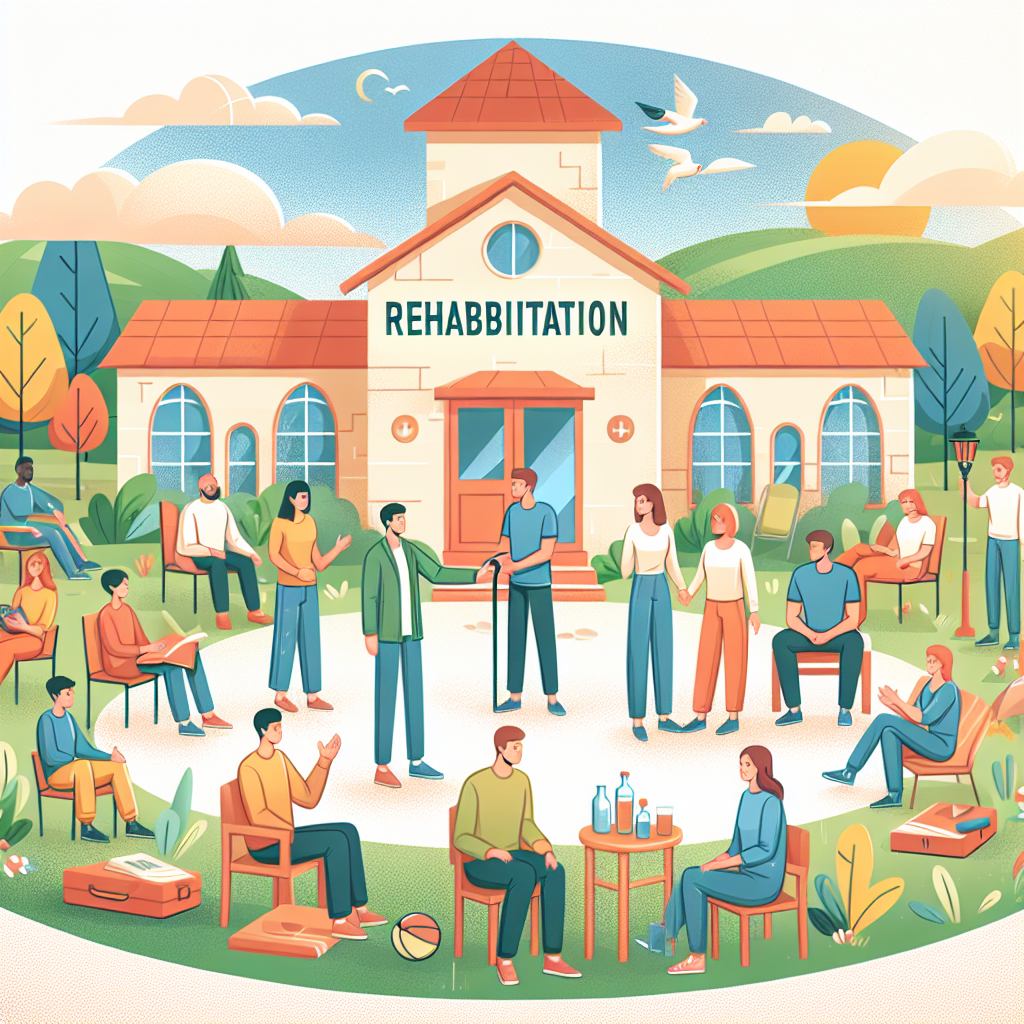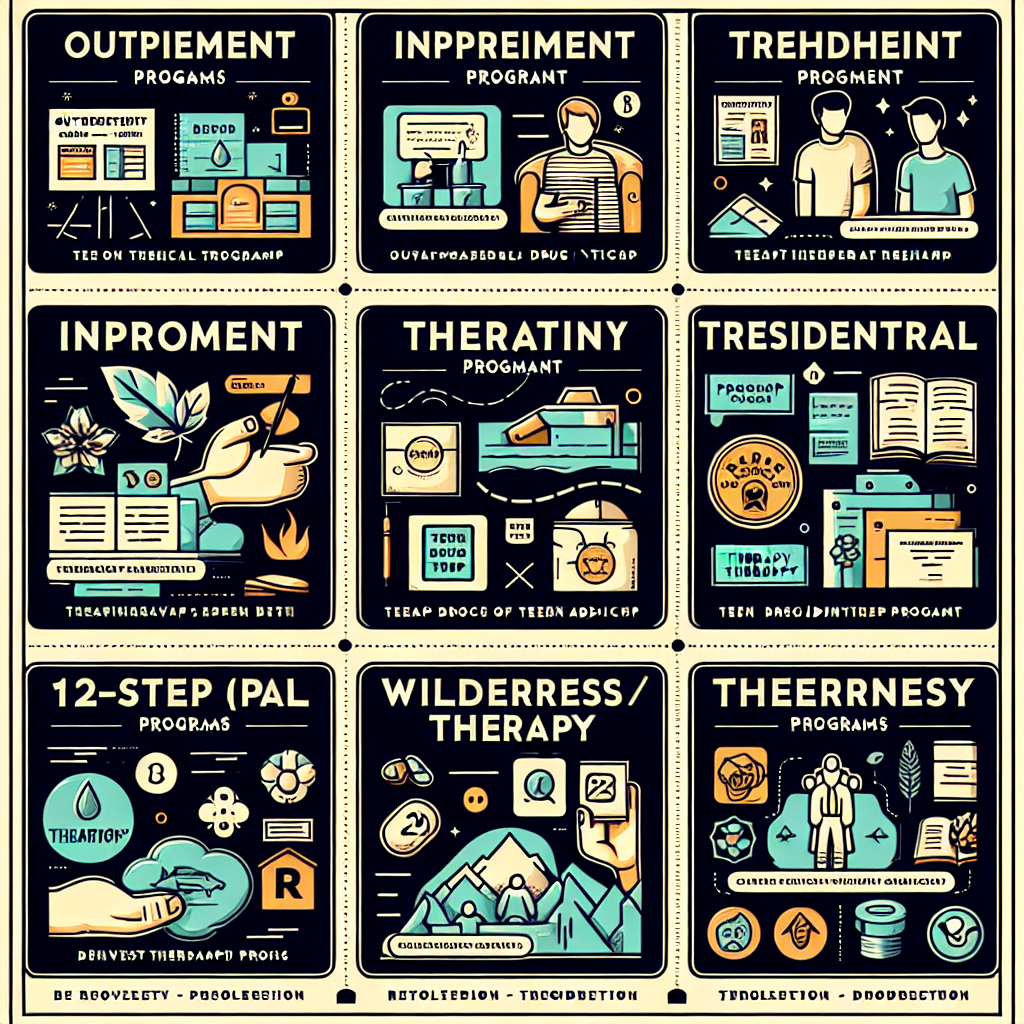-
Table of Contents

“Empowering Teens to Thrive: Building Resilience Through Healthy Coping Mechanisms in Rehab”
Introduction
Rehabilitation programs play a crucial role in helping teens develop healthy coping mechanisms, essential for navigating the myriad challenges of adolescence. These programs provide a structured environment where teens can learn to manage stress, anxiety, and other emotional difficulties in a constructive manner. Through a combination of therapy, education, and support, rehab helps teens understand the root causes of their struggles and equips them with practical tools to handle life’s pressures. By fostering resilience and promoting positive behavioral changes, rehabilitation empowers teens to build a foundation for long-term mental and emotional well-being.
The Role Of Rehab In Teaching Teens Effective Stress Management Techniques
Rehabilitation programs play a crucial role in helping teens develop healthy coping mechanisms, particularly when it comes to managing stress. Adolescence is a period marked by significant physical, emotional, and social changes, which can often lead to overwhelming stress. Without proper guidance, teens may resort to unhealthy coping strategies such as substance abuse, self-harm, or withdrawal. However, rehab programs offer a structured environment where teens can learn and practice effective stress management techniques, setting the foundation for a healthier future.
One of the primary benefits of rehab is the comprehensive approach it takes to address the root causes of stress. Through individual and group therapy sessions, teens are encouraged to explore their emotions and identify the underlying issues contributing to their stress. This self-awareness is the first step in developing healthier coping mechanisms. By understanding the triggers and patterns of their stress, teens can begin to address these issues constructively rather than resorting to harmful behaviors.
Moreover, rehab programs often incorporate various therapeutic techniques that teach teens how to manage stress effectively. Cognitive-behavioral therapy (CBT), for instance, helps teens recognize and change negative thought patterns that contribute to their stress. By learning to reframe their thoughts, teens can reduce the intensity of their stress responses and approach challenges with a more positive mindset. Additionally, mindfulness and relaxation techniques such as meditation, deep breathing exercises, and yoga are commonly integrated into rehab programs. These practices help teens develop a sense of calm and focus, enabling them to handle stress more effectively.
Another significant aspect of rehab is the emphasis on building a supportive community. Peer support is invaluable for teens as they navigate the complexities of adolescence. In rehab, teens have the opportunity to connect with others who are facing similar challenges. This sense of camaraderie and mutual understanding can be incredibly empowering. Sharing experiences and coping strategies with peers not only provides emotional support but also fosters a sense of belonging and reduces feelings of isolation.
Furthermore, rehab programs often include educational components that equip teens with practical life skills. Time management, problem-solving, and effective communication are essential skills that can significantly reduce stress. By learning how to manage their time efficiently, teens can avoid the last-minute rush and the stress that comes with it. Problem-solving skills enable them to tackle challenges head-on rather than feeling overwhelmed. Effective communication helps them express their needs and emotions clearly, reducing misunderstandings and conflicts that can contribute to stress.
In addition to these therapeutic and educational components, rehab programs also emphasize the importance of physical health in managing stress. Regular physical activity is a proven stress reliever, and many rehab programs incorporate exercise routines into their daily schedules. Whether it’s through team sports, individual workouts, or outdoor activities, physical exercise helps teens release built-up tension and improve their overall well-being.
Ultimately, the goal of rehab is to empower teens with the tools and strategies they need to manage stress in a healthy and constructive manner. By addressing the root causes of stress, teaching effective coping techniques, fostering a supportive community, and promoting physical health, rehab programs provide a holistic approach to stress management. As teens develop these skills, they become better equipped to handle the challenges of adolescence and beyond, paving the way for a healthier, more resilient future.
How Rehab Programs Foster Emotional Resilience In Adolescents
Rehabilitation programs play a crucial role in helping adolescents develop healthy coping mechanisms, fostering emotional resilience that can last a lifetime. During the tumultuous teenage years, young people often face a myriad of challenges, from academic pressures to social dynamics and family issues. These stressors can sometimes lead to unhealthy coping strategies, such as substance abuse or self-harm. However, rehab programs offer a structured environment where teens can learn to navigate their emotions and stressors in a healthier way.
One of the primary ways rehab programs foster emotional resilience is through therapy. Individual therapy sessions provide a safe space for teens to explore their feelings and experiences with a trained professional. This one-on-one interaction allows them to delve into the root causes of their struggles, gaining insights that can lead to meaningful change. Moreover, group therapy sessions offer a sense of community and shared experience. By interacting with peers who are facing similar challenges, teens can feel less isolated and more understood, which is a critical component of emotional healing.
In addition to therapy, rehab programs often incorporate educational workshops that teach practical skills for managing stress and emotions. These workshops might cover topics such as mindfulness, emotional regulation, and effective communication. Mindfulness practices, for instance, help teens stay present and grounded, reducing anxiety and improving their ability to handle difficult situations. Learning to regulate emotions can prevent the escalation of negative feelings, while effective communication skills can improve relationships and reduce misunderstandings.
Furthermore, rehab programs emphasize the importance of physical health in emotional well-being. Regular exercise, a balanced diet, and adequate sleep are all integral components of a healthy lifestyle that supports emotional resilience. Physical activity, in particular, has been shown to reduce symptoms of depression and anxiety, providing a natural outlet for stress. By incorporating these healthy habits into their daily routines, teens can build a strong foundation for both physical and emotional health.
Another significant aspect of rehab programs is the focus on building a support network. Family therapy sessions can help repair and strengthen familial relationships, providing a stable support system for the teen. Additionally, rehab programs often encourage the involvement of mentors or sponsors who can offer guidance and support beyond the duration of the program. These relationships can provide a sense of accountability and encouragement, which are essential for long-term success.
Moreover, rehab programs often include creative and recreational activities that allow teens to express themselves in non-verbal ways. Art therapy, music therapy, and outdoor activities can be incredibly therapeutic, offering alternative outlets for emotions that might be difficult to articulate. These activities not only provide a break from traditional therapy but also help teens discover new interests and passions, contributing to a more balanced and fulfilling life.
As teens progress through rehab, they begin to see the benefits of these healthy coping mechanisms in their daily lives. They learn that while challenges and stressors are inevitable, their responses to these situations can make a significant difference. By developing emotional resilience, they become better equipped to handle future adversities, reducing the likelihood of relapse into unhealthy behaviors.
In conclusion, rehab programs offer a comprehensive approach to fostering emotional resilience in adolescents. Through therapy, education, physical health, support networks, and creative activities, teens can develop the skills and habits necessary for a healthier, more balanced life. The journey may be challenging, but with the right support and resources, teens can emerge stronger and more resilient, ready to face the world with confidence and hope.
Q&A
1. **Question:** How can rehab programs help teens identify and understand their triggers for unhealthy behaviors?
**Answer:** Rehab programs often include therapy sessions where teens work with counselors to identify and understand their triggers, helping them recognize the situations, emotions, or thoughts that lead to unhealthy behaviors.
2. **Question:** What role do peer support groups in rehab play in helping teens develop healthy coping mechanisms?
**Answer:** Peer support groups in rehab provide a safe space for teens to share their experiences and learn from others, fostering a sense of community and offering practical advice and strategies for developing healthy coping mechanisms.
Conclusion
Rehab can help teens develop healthy coping mechanisms by providing a structured environment where they can learn and practice new skills, receive support from trained professionals, and engage in therapeutic activities. This process helps them understand and manage their emotions, build resilience, and adopt positive behaviors, ultimately leading to improved mental health and well-being.



